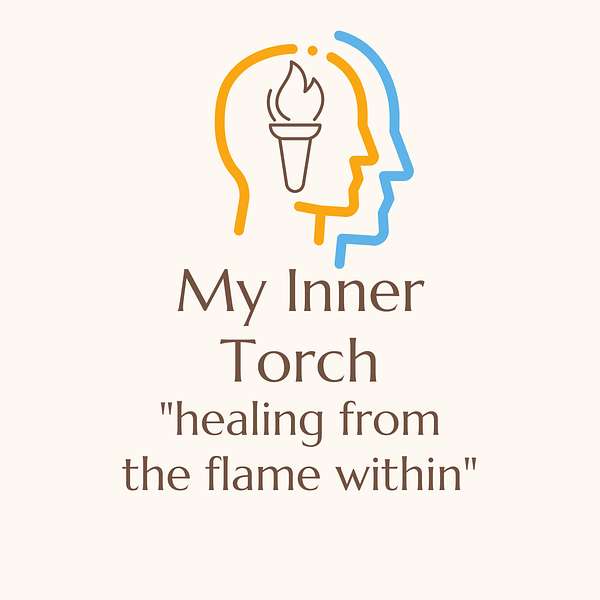
My Inner Torch
My Inner Torch offers direct and personal insight with help for those of us in a relationship with someone who is undiagnosed/diagnosed with a Cluster B Personality Disorder. This is a safe place to come for words of inspiration that draw from my personal experiences and is produced to gain understanding and to find direction as we navigate through the often difficult relationships with those we love who suffer with a Cluster B personality disorder that includes BPD and NPD. PLEASE NOTE: This podcast is NOT for those who suffer with these disorders. This podcast is for survivors of these challenging and difficult relationships.
My Inner Torch
It's OK to love your Cluster B!
🎯 Key Takeaways
Core Points:
- I accept that it is okay to love a Cluster B individual. My real love does not simply disappear.
- I recognize the issue is loving at my own expense. I will protect my identity by separating compassion from self-sacrifice.
- I will set clear boundaries to safeguard myself. These boundaries will foster connection without self-destruction.
- I will practice emotional detachment. I will observe their behavior as a disorder, not a personal attack.
- I will stop trying to fix them. They need professional help. I will shift from “savior” to “survivor” by loving consciously.
- I will prioritize self-love and self-care. I will love them from a place of awareness, accepting their limitations, and ensuring my well-being comes first.
🔍 Summary
Loving a Cluster B Individual
I discuss the often-taboo subject of continuing to love a partner with a Cluster B personality disorder. I recognize that my true love does not simply vanish, unlike the Cluster B individual’s capacity to switch emotions off. I understand that believing love should disappear can add shame to my healing process. I highlight that love itself is not the issue; the difficulty arises from loving at my own expense. This often happens because the Cluster B individual’s charm, intensity, and vulnerability create an “emotional gravity” that draws me in, making me feel needed.
Protecting My Identity While Loving
To love my Cluster B partner without sacrificing my identity, I must distinguish between compassion and self-sacrifice. I recognize that their behavior comes from a disorder. However, I refuse to let that disorder consume my sense of self. I can love someone and still maintain boundaries, or care for them and still decline requests. Understanding their wounds without allowing them to reopen my own is a vital balance for my self-preservation.
Steps to Conscious Love
The first step involves accepting reality: Cluster B individuals often struggle with empathy and emotional regulation. Their love can feel conditional and sometimes harsh. By not expecting them to love me in the same way I love them, I shield my heart from constant disappointment. This acceptance of their limits offers me clarity, not weakness. Next, establishing boundaries is crucial. These are bridges that allow connection without self-destruction. Examples include refusing to engage during shouting or not accepting blame for actions not my own. Such boundaries maintain my safety, which allows genuine compassion to survive.
Detachment and Self-Preservation
Emotional detachment is a key practice for me, not as indifference, but as a form of emotional regulation. This practice helps me stop reacting to their moods, feeling responsible for their emotions, or absorbing their chaos. Detachment provides the space to observe their behavior as patterns of a disorder, rather than personal attacks. I understand it is important to love without trying to fix them. Attempting to fix a Cluster B individual is draining, as they require professional help and a willingness to change, factors outside my direct control. I will shift from a “savior” role to a “survivor” by loving consciously, rather than compulsively.
Inward Focus and Newfound Freedom
A critical final step is to redirect love inward. After dedicating significant love to the Cluster B relationship, I must extend the same empathy, patience, and forgiveness to myself. Rebuilding my sense of self occurs by consciously prioritizing my own well-being. This journey culminates in a new kind of freedom, where my self-worth and peace are paramount. I accept that it